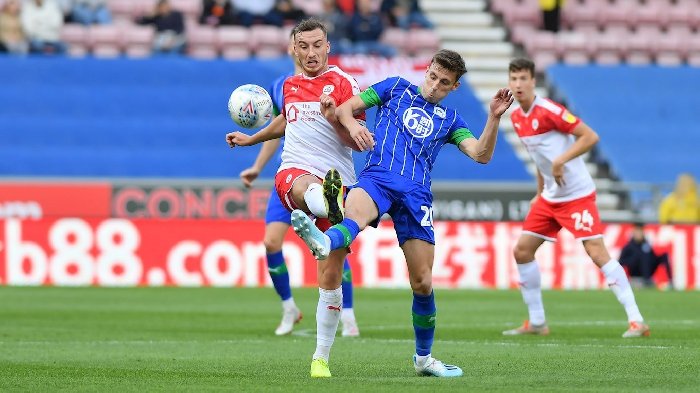-
Thực hư thông tin về các loại trứng gà 2 lòng đỏ, vỏ nhiều màu sắc
Ông Nguyễn Thanh Sơn, Chủ tịch Hiệp hội Gia cầm Việt Nam, khẳng định điều này. Theo đó, những tranh…
Read More » -
VCCI cảnh báo nguy cơ từ miễn thuế hàng nhập khẩu qua thương mại điện tử
Liên đoàn Thương mại và Công nghiệp Việt Nam (VCCI) vừa có văn bản gửi Bộ Tài chính góp ý…
Read More » -
The Coffee House bịt ổ điện bị khách phản ứng, giới kinh doanh nói gì?
Những hình ảnh đăng tải trên mạng xã hội cho thấy nhiều chi nhánh The Coffee House đã bịt ổ…
Read More » -
Bất động sản công nghiệp Việt Nam tiếp tục là điểm sáng trong cuối năm 2024
Nhiều “ông lớn” toàn cầu mở rộng sản xuất tại Việt Nam Về thị trường đất công nghiệp, tỷ lệ…
Read More » -
Thị trường nhà ở sẽ bắt đầu chu kỳ mới vào năm 2025
Căn hộ chung cư ghi nhận nguồn cung mới trong quý IV Theo CBRE, trong năm 2024, nguồn cung căn…
Read More » -
Tải Game FA88 trải nghiệm cá cược miễn phí
FA88 CLUB là một trong những thương hiệu đang làm mưa làm gió trên thị trường cá cược hiện nay.…
Read More » -
IWIN NET – Thương hiệu giải trí cá cược đầy cuốn hút
IWIN NET đang là cái tên nhận được sự quan tâm lớn từ những người mới tham gia cá cược.…
Read More » -
789CLUB Tài xỉu – Sân chơi đổi thưởng đẳng cấp
789CLUB tài xỉu là một cổng game chơi tài xỉu đổi thưởng được đánh giá cao bởi tính ổn định,…
Read More » -
Top cổng game bài đổi thưởng uy tín được giới trẻ yêu thích
Thị trường cá cược trực tuyến hiện nay đang ngày càng phát triển với nhiều trò chơi hấp dẫn, nhưng game…
Read More » -
Truy cập HIT.CLUB tải game đổi thưởng ăn tiền khủng
HIT CLUB là một trong những cổng game có tên tuổi lớn trong ngành cá cược và nó đã nhận…
Read More » -
Top 10 nhà cái uy tín nhất do cược thủ bình chọn
Top 10 nhà cái uy tín nhất dưới đây do cược thủ bình chọn dưới đây dựa trên nhiều tiêu chí…
Read More » -
Top 10 nhà cái uy tín đáng chơi nhất
Việc lựa chọn một nhà cái uy tín để tham gia cá cược là một yếu tố rất quan trọng đối với…
Read More » -
Bật mí các shop bán đồ Ulzzang trên Shopee đẹp mà bạn không nên bỏ lỡ
Ulzzang được hiểu là một thuật ngữ có ý nghĩa những gì tốt nhất, đẹp nhất và được xếp hạng…
Read More » -
Thời trang
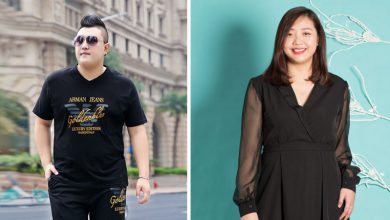
Top 6 shop bán đồ big size trên Shopee cho tín đồ “yêu body”
Body của bạn ra sao thì đó cũng là một “tuyên ngôn” về cái đẹp của riêng bản thân mình.…
Read More » -
Thời trang
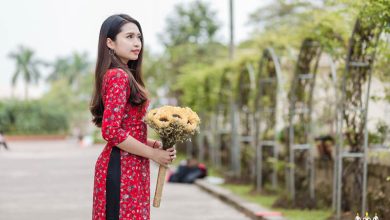
Danh sách các loại vải may áo dài siêu đẹp bạn không nên bỏ lỡ
Áo dài là một trang phục truyền thống của người Việt Nam không thể thiếu trong các dịp lễ Tết,…
Read More » -
Thời trang

Top 5 shop bán đồ bộ nữ đẹp trên Shopee
Những bộ đồ mặc ở nhà không những cần sự thoải mái mà ngày nay mọi người còn muốn tìm…
Read More » -
Thời trang

20+ outfit phối đồ mùa đông ấm áp, chuẩn đẹp và trendy
Phối đồ mùa đông như thế nào để trông thật xinh xắn và thời trang nhưng vẫn giữ ấm tốt?…
Read More » -
Thời trang

Tips mix trang phục với gam màu đỏ để đón Tết 2022
Từ cổ chí kim, màu đỏ được xem là gam màu may mắn; thế nên mỗi dịp Tết đến xuân…
Read More » -
Thời trang

Local brand là gì? 15+ local brand được yêu thích trên Shopee
Bạn có thể đã nghe nhắc đến cụm từ “local brand” khi nói về thời trang. Vậy local brand là…
Read More » -
Thời trang

5 Cách phối đồ với giày Gucci nữ HOT nhất năm 2022
Gucci là một trong những thương hiệu thời trang nổi tiếng trên thế giới. Và từng là hãng thời trang…
Read More » -
Thời trang

Những shop đồ ngủ đẹp trên Shopee mà bạn không nên bỏ qua
Đồ ngủ là loại trang phục không thể thiếu trong tủ đồ đối với mọi cô gái. Chúng thường làm…
Read More » -
Thời trang

Màu xanh dương phối với màu gì? 23+ cách phối chuẩn đẹp
Màu xanh dương phối với màu gì để tạo nên trang phục thời thượng và chuẩn đẹp là câu hỏi…
Read More » -
Thời trang
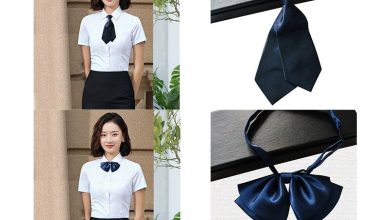
Bỏ túi cách thắt cà vạt nữ đơn giản mà vẫn đem lại sự tinh tế
Cà vạt không chỉ là phụ kiện thời trang cần thiết của phái nam mà còn mang lại sự tinh…
Read More » -
Thời trang

Nâng tầm trang phục với cách thắt nơ cổ áo đơn giản
Lên đồ hằng ngày với những chiếc áo basic khiến bạn quá nhàm chán? Vậy sao không tự tạo cho…
Read More » -
Thời trang

Phối đồ với giày đế xuồng sao cho tinh tế
Đối với các cô nàng fashionista chính hiệu thì trong tủ đồ chắc chắn chẳng thiếu được item giày dép…
Read More » -
Thời trang

Shop thời trang unisex siêu chất cho giới trẻ trên Shopee
Phong cách thời trang unisex đang dần khẳng định vị trí của mình trên thị trường cũng như nhận được…
Read More » -
Thời trang

Bật mí cách phối đồ với quần Legging mùa hè siêu “xịn”
Legging chắc hẳn là mẫu item không thể thiếu trong tủ đồ của các bạn nữ. Vậy vào mùa hè…
Read More » -
Thời trang

Da ngăm nên mặc màu gì để vừa đẹp vừa ấn tượng
Một trong những vấn đề gây đau đầu cho những ai sở hữu làn da ngăm đen là việc lựa…
Read More » -
Thời trang

Top 13+ shop Taobao trên Shopee uy tín giá rẻ
Thời gian gần đây, việc mua sắm đồ Taobao trên Shopee đã trở thành một cơn sốt trong giới trẻ.…
Read More » -
Thời trang

Mix đồ với chân váy kẻ caro mùa đông trẻ trung, năng động
Chân váy kẻ caro là item chưa bao giờ hết hot dù là mùa hè hay mùa đông bởi sự…
Read More » -
Thời trang

Kết hợp váy với áo khoác dạ cho mùa đông ấm áp
Áo khoác dạ và váy là 2 item quen thuộc trong tủ đồ của các nàng vào mùa thu đông…
Read More » -
Thời trang

Top 21+ cách phối đồ với áo hoodie nữ thoải mái, sành điệu
Phối đồ với áo hoodie nữ luôn là lựa chọn lý tưởng cho những ngày đông se lạnh, khi bạn…
Read More » -
Vệ sinh công nghiệp

Ảnh hưởng của bụi đối với Phổi gây ra những điều gì?
– 1. Ảnh hưởng của bụi đối với Phổi gây ra những điều gì? Phổi luôn được bảo vệ bởi…
Read More » -
Vệ sinh công nghiệp

Cần lưu ý điều gì khi vệ sinh ghế da trên xe ô tô?
– Cần lưu ý điều gì khi vệ sinh ghế da trên xe ô tô? 1. Chuẩn bị đầy đủ…
Read More » -
Vệ sinh công nghiệp
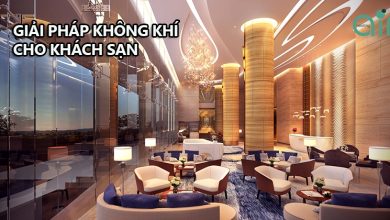
Lựa chọn giải pháp không khí sạch cho khách sạn
– Lựa chọn giải pháp không khí sạch cho khách sạn 1. Thực trạng ô nhiễm không khí tại khách…
Read More » -
Vệ sinh công nghiệp

Vì sao cần lắp đặt thêm máy lọc không khí cho phòng ngủ khách sạn?
– 1. Vì sao cần lắp đặt thêm máy lọc không khí cho phòng ngủ khách sạn? Có nhiều báo…
Read More » -
Vệ sinh công nghiệp

Bật mí cách trang trí phòng trong khách sạn ấn tượng và sạch đẹp
– Bật mí cách trang trí phòng trong khách sạn ấn tượng và sạch đẹp 1. Lựa chọn phong cách…
Read More » -
Vệ sinh công nghiệp

Rác thải nhựa ảnh hưởng tới sức khỏe và môi trường như thế nào?
– 1. Rác thải nhựa là gì? Rác thải nhựa là các vật liệu nhựa hay chất dẻo tổng hợp…
Read More » -
Vệ sinh công nghiệp

Hướng dẫn vệ sinh thiết bị khử mùi không khí
– Tại sao lại phải vệ sinh thiết bị khử mùi không khí? Sau một thời gian hoạt động, vi…
Read More » -
Vệ sinh công nghiệp

Kinh nghiệm mua máy lọc không khí phù hợp nhu cầu sử dụng
– 1. Xác định rõ nhu cầu mua máy lọc không khí Trước khi mua máy lọc không khí, hãy…
Read More » -
Vệ sinh công nghiệp

Học cách dọn dẹp nhà cửa như người Nhật hiệu quả cực cao
– Học cách dọn dẹp nhà cửa như người Nhật hiệu quả cực cao 1. Gom và phân nhóm đồ…
Read More » -
Vệ sinh công nghiệp

Tại sao phòng kín lại rất nóng? Khắc phục như thế nào?
– Tại sao phòng kín lại rất nóng? Khắc phục như thế nào? 1. Tại sao phòng kín lại rất…
Read More » -
Vệ sinh công nghiệp

Nên bật máy lạnh bao nhiêu độ thì phù hợp?
– Nên bật máy lạnh bao nhiêu độ thì phù hợp? 1. Có nên cài máy lạnh nhiệt độ thấp…
Read More » -
Vệ sinh công nghiệp

Cây có lọc không khí vào ban đêm hay không?
– Cây có lọc không khí vào ban đêm hay không? Cây có lọc không khí vào ban đêm hay…
Read More » -
Vệ sinh công nghiệp

Hướng dẫn kiểm tra máy lọc không khí chính hãng
– Hướng dẫn kiểm tra máy lọc không khí chính hãng Hướng dẫn kiểm tra máy lọc không khí chính…
Read More » -
Vệ sinh công nghiệp

Cách làm mát căn phòng khi không có điều hòa
– Cách làm mát căn phòng khi không có điều hòa 1. Sử dụng quạt điện kết hợp với đá…
Read More » -
Vệ sinh công nghiệp

Hướng dẫn cách vệ sinh ghế nỉ ô tô sạch bong trông như mới
– Hướng dẫn cách vệ sinh ghế nỉ ô tô sạch bong trông như mới 1. Chuẩn bị dụng cụ…
Read More » -
Vệ sinh công nghiệp

Điều hòa đang chạy bỗng dưng tự ngắt thì phải làm sao?
– Nguyên nhân điều hoà đang chạy bỗng tự dưng ngắt Có nhiều nguyên nhân có thể gây ra hiện…
Read More » -
Vệ sinh công nghiệp

Hướng dẫn vệ sinh máy sấy tóc nhanh chóng và đơn giản nhất
– Hướng dẫn vệ sinh máy sấy tóc nhanh chóng và đơn giản nhất 1. Khi nào cần vệ sinh…
Read More » -
Vệ sinh công nghiệp

6 lưu ý hữu ích trước khi mua quạt mát mà bạn cần biết
– 6 lưu ý hữu ích trước khi mua quạt mát mà bạn cần biết 1. Chọn loại quạt mát…
Read More » -
Vệ sinh công nghiệp
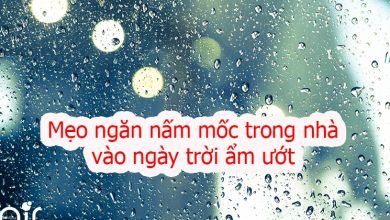
10 mẹo ngăn nấm mốc trong nhà vào ngày trời ẩm ướt ở Hà Nội
– 10 mẹo ngăn nấm mốc trong nhà vào ngày trời ẩm ướt ở Hà Nội 1. Đóng kín cửa…
Read More » -
Vệ sinh công nghiệp

Hướng dẫn cách đặt quạt đối lưu chuẩn giúp căn nhà thông thoáng mỗi ngày
– Hướng dẫn cách đặt quạt đối lưu chuẩn giúp căn nhà thông thoáng mỗi ngày 1. Quạt đối lưu…
Read More » -
Vệ sinh công nghiệp
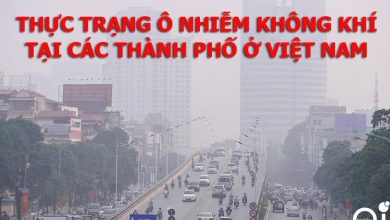
Tình trạng ô nhiễm không khí ở các thành phố lớn tại Việt Nam như thế nào?
– 1. Thực trạng ô nhiễm không khí tại các thành phố lớn ở Việt Nam Hiện nay, tình trạng…
Read More » -
Vệ sinh công nghiệp

Giải pháp thông gió tự nhiên giúp ngôi nhà mát mẻ hơn vào mùa hè
– Giải pháp thông gió tự nhiên giúp ngôi nhà mát mẻ hơn vào mùa hè 1. Tại sao nên…
Read More » -
Chính trị
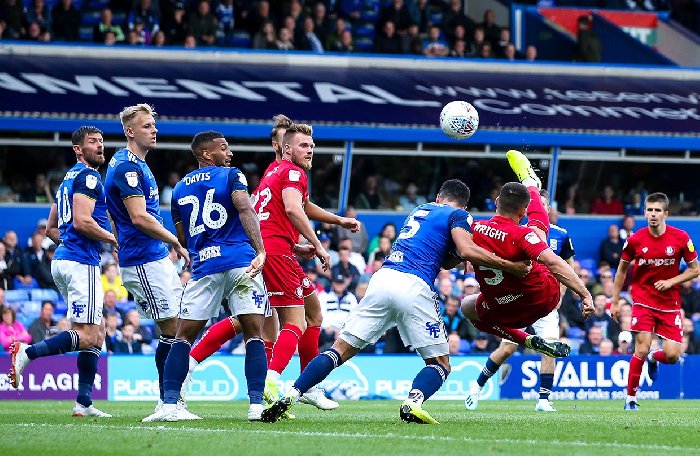
Nhận định dự đoán Birmingham vs Bristol City, lúc 2h45 ngày 30/12/2023
Nhận định Birmingham vs Bristol City, dự đoán kết quả tỷ số vòng 25 hạng nhất Anh hôm nay lúc…
Read More » -
Outdoors
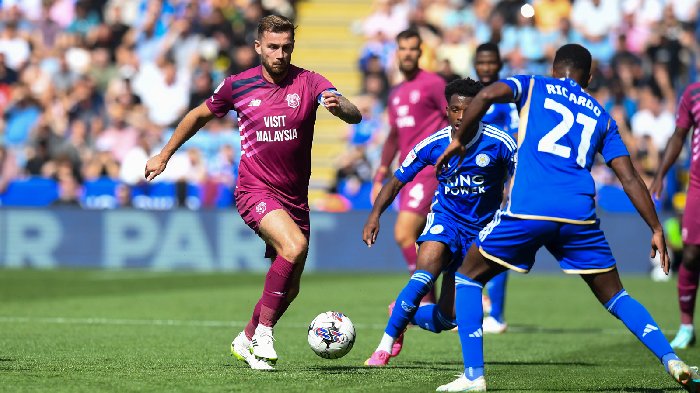
Nhận định dự đoán Cardiff City vs Leicester City, lúc 2h45 ngày 30/12/2023
Nhận định Cardiff City vs Leicester City, dự đoán kết quả tỷ số vòng 25 hạng nhất Anh hôm nay…
Read More » -
Outdoors

Nhận định dự đoán Huddersfield vs Middlesbrough, lúc 2h45 ngày 30/12/2023
Nhận định Huddersfield vs Middlesbrough, dự đoán kết quả tỷ số vòng 25 hạng nhất Anh hôm nay lúc 2h45…
Read More » -
Outdoors

Nhận định dự đoán Ipswich vs Queens Park Rangers, lúc 2h45 ngày 30/12/2023
Nhận định Ipswich vs Queens Park Rangers, dự đoán kết quả tỷ số vòng 25 hạng nhất Anh hôm nay…
Read More » -
Outdoors
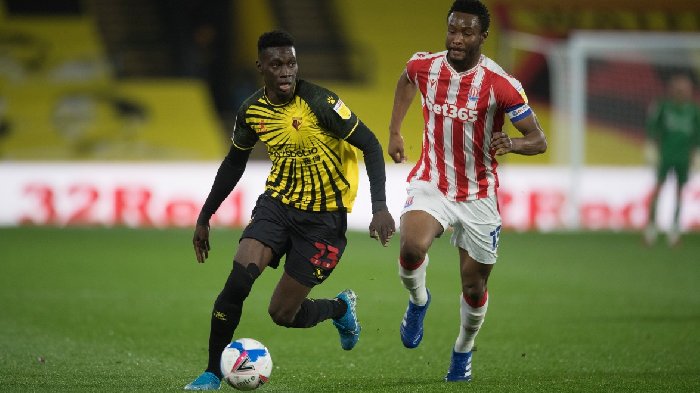
Nhận định dự đoán Watford vs Stoke City, lúc 2h45 ngày 30/12/2023
Nhận định Watford vs Stoke City, dự đoán kết quả tỷ số vòng 25 hạng nhất Anh hôm nay lúc…
Read More » -
Outdoors

Nhận định dự đoán West Brom vs Leeds United, lúc 3h15 ngày 30/12/2023
Nhận định West Brom vs Leeds United, dự đoán kết quả tỷ số vòng 25 hạng nhất Anh hôm nay…
Read More » -
Outdoors

Nhận định dự đoán Southampton vs Plymouth Argyle, lúc 01h00 ngày 30/12/2023
Nhận định Southampton vs Plymouth Argyle, dự đoán Hạng nhất Anh hôm nay 01h00 ngày 30/12/2023 chính xác nhất. Nhận…
Read More » -
Outdoors
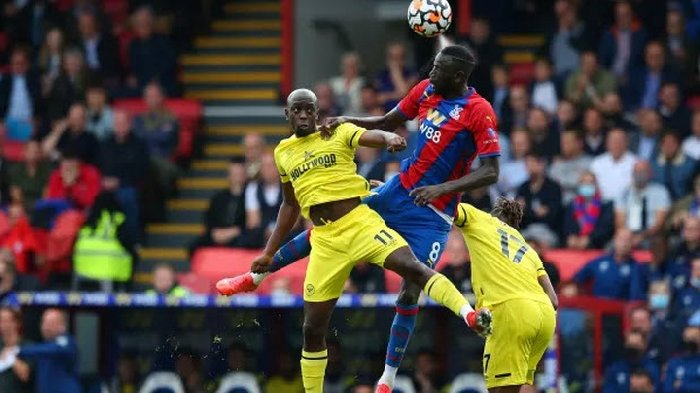
Nhận định dự đoán Crystal Palace vs Brentford, lúc 22h00 ngày 30/12/2023
Nhận định Crystal Palace vs Brentford, dự đoán kết quả tỷ số vòng 20 Ngoại hạng Anh hôm nay lúc…
Read More » -
Outdoors
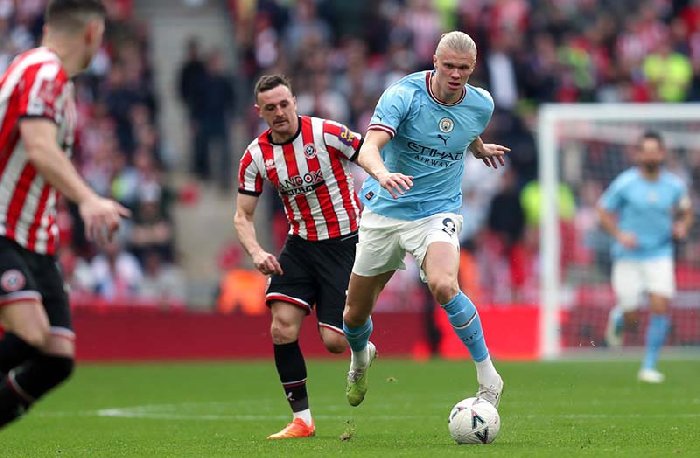
Nhận định dự đoán Man City vs Sheffield United, lúc 22h00 ngày 30/12/2023
Nhận định Man City vs Sheffield United, dự đoán kết quả tỷ số vòng 20 Ngoại hạng Anh hôm nay…
Read More » -
Outdoors
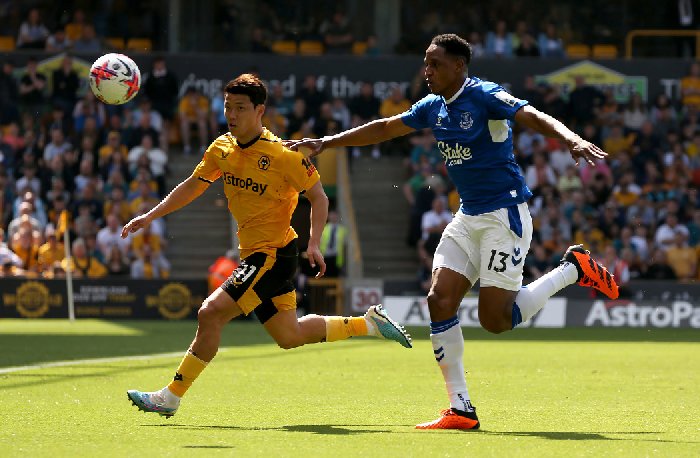
Nhận định dự đoán Wolverhampton vs Everton, lúc 22h00 ngày 30/12/2023
Nhận định Wolverhampton vs Everton, dự đoán kết quả tỷ số vòng 20 Ngoại hạng Anh hôm nay lúc 22h00…
Read More » -
Outdoors

Nhận định dự đoán Luton Town vs Chelsea, lúc 19h30 ngày 30/12/2023
Nhận định Luton Town vs Chelsea, dự đoán Ngoại hạng Anh hôm nay 19h30 ngày 30/12/2023 chính xác. Nhận định…
Read More » -
Outdoors
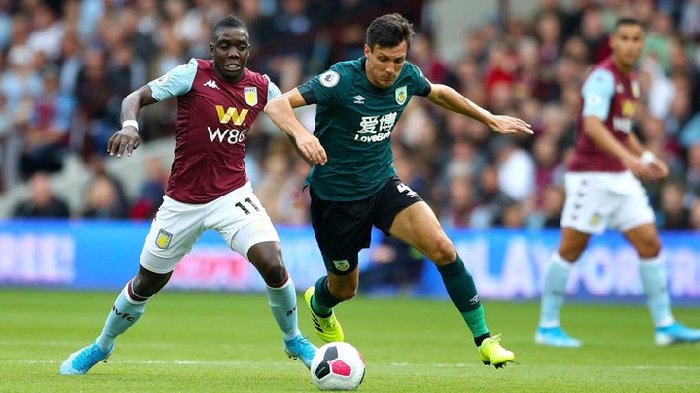
Nhận định dự đoán Aston Villa vs Burnley, lúc 22h00 ngày 30/12/2023
Nhận định Aston Villa vs Burnley, dự đoán Ngoại hạng Anh hôm nay 20h30 ngày 30/12/2023chính xác nhất. Nhận định…
Read More » -
Outdoors

Nhận định dự đoán Nottingham vs MU, lúc 0h30 ngày 31/12/2023
Nhận định Nottingham vs MU, dự đoán Ngoại hạng Anh hôm nay 0h30 ngày 31/12/2023 chính xác nhất. Nhận định…
Read More » -
Outdoors

Nhận định dự đoán Fulham vs Arsenal, lúc 21h00 ngày 31/12/2023
Nhận định Fulham vs Arsenal, dự đoán Ngoại hạng Anh hôm nay 21h00 ngày 31/12/2023 chính xác. Nhận định bóng…
Read More » -
Outdoors

Nhận định dự đoán Tottenham vs Bournemouth, lúc 21h00 ngày 31/12/2023
Nhận định Tottenham vs Bournemouth, dự đoán kết quả tỷ số vòng 20 Ngoại hạng Anh hôm nay lúc 21h00…
Read More » -
Outdoors

Soi kèo nhà cái Fulham vs Arsenal, 21h00 ngày 31/12/2023
Soi kèo nhà cái Fulham vs Arsenal, vòng 20 Ngoại hạng Anh lúc 21h00 ngày 31/12/2023. Cập nhật tỷ lệ…
Read More » -
Outdoors
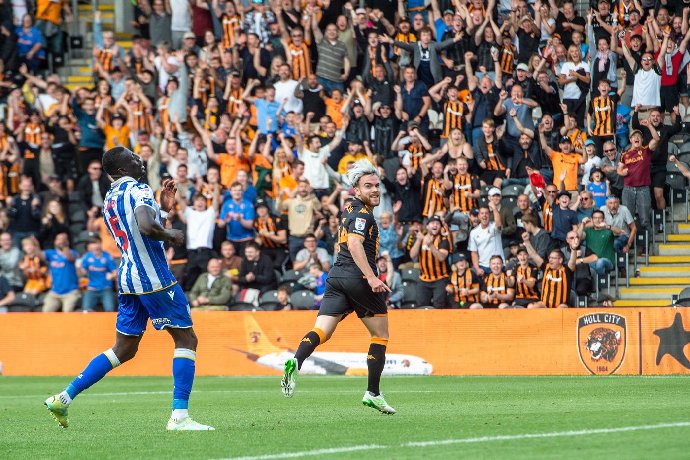
Nhận định dự đoán Sheffield Wed vs Hull City, lúc 0h15 ngày 2/1/2024
Nhận định Sheffield Wed vs Hull City, dự đoán kết quả tỷ số vòng 26 hạng Nhất Anh hôm nay…
Read More » -
Outdoors
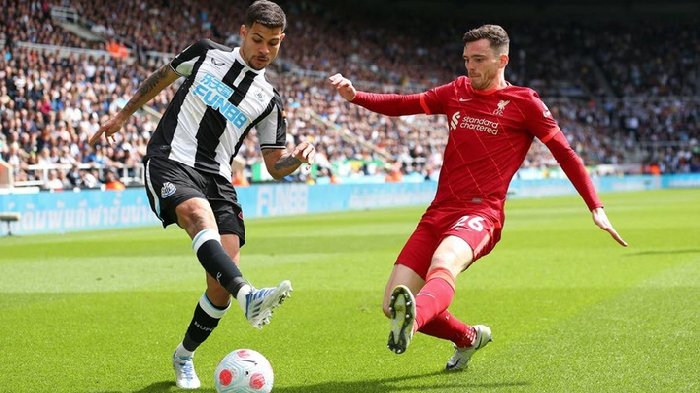
Nhận định dự đoán Liverpool vs Newcastle, lúc 3h00 ngày 2/1/2024
Nhận định Liverpool vs Newcastle, dự đoán kết quả tỷ số vòng 20 Ngoại hạng Anh hôm nay lúc 3h00…
Read More » -
Outdoors
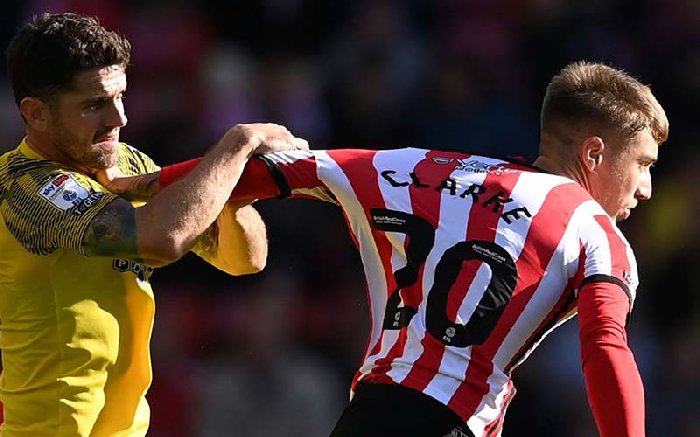
Nhận định dự đoán Sunderland vs Preston North End, lúc 19h30 ngày 1/1/2024
Nhận định Sunderland vs Preston North End, dự đoán Hạng nhất Anh hôm nay 19h30 ngày 1/1/2024 chính xác. Nhận…
Read More » -
Outdoors

Nhận định dự đoán Swansea City vs West Brom, lúc 22h00 ngày 1/1/2024
Nhận định Swansea City vs West Brom, dự đoán Hạng Nhất Anh hôm nay 22h00 ngày 1/1/2024 chính xác nhất.…
Read More » -
Outdoors

Nhận định dự đoán Hampton và Richmond vs Slough Town, lúc 20h00 ngày 1/1/2024
Nhận định Hampton & Richmond vs Slough Town, dự đoán National League South hôm nay 20h00 ngày 1/1/2024 chính xác…
Read More » -
Outdoors

Nhận định dự đoán Brackley Town vs Banbury United, lúc 20h00 ngày 1/1/2024
Nhận định Brackley Town vs Banbury United, dự đoán Giải hạng 5 Anh hôm nay 20h00 ngày 1/1/2024 chính xác.…
Read More » -
Outdoors
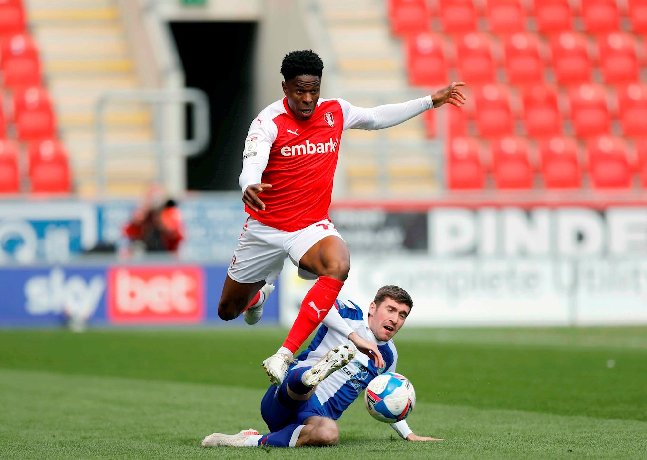
Nhận định dự đoán Blackburn vs Rotherham, lúc 22h00 ngày 1/1/2024
Nhận định Blackburn vs Rotherham, dự đoán Hạng nhất Anh hôm nay 22h00 ngày 1/1/2024 chính xác nhất. Nhận định…
Read More » -
Outdoors
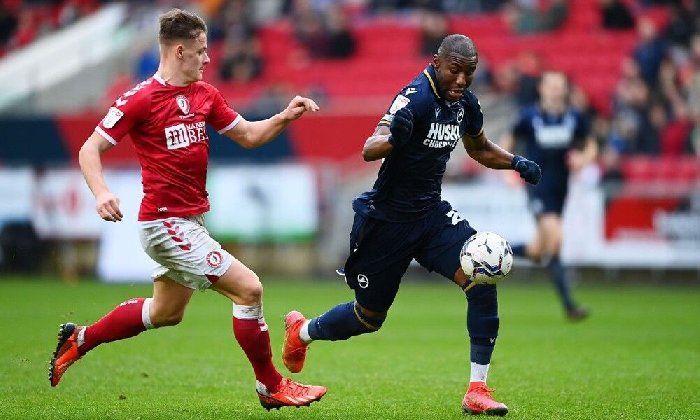
Nhận định dự đoán Bristol City vs Millwall, lúc 22h00 ngày 1/1/2024
Nhận định Bristol City vs Millwall, dự đoán Hạng nhất Anh hôm nay 22h00 ngày 1/1/2024 chính xác nhất. Nhận…
Read More » -
Outdoors
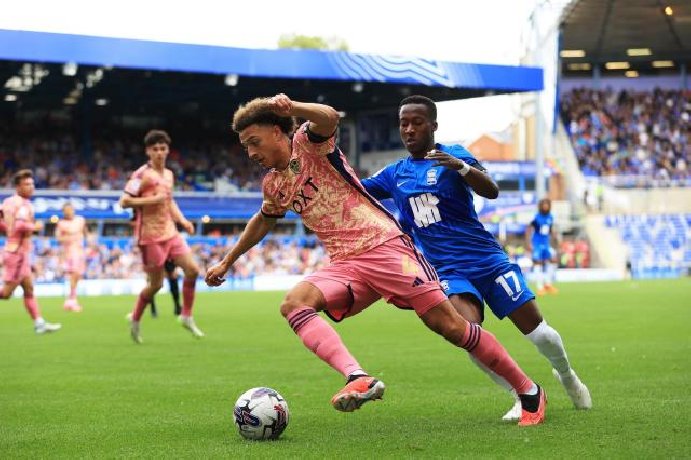
Nhận định dự đoán Leeds United vs Birmingham, lúc 22h00 ngày 1/1/2024
Nhận định Leeds United vs Birmingham, dự đoán Hạng nhất Anh hôm nay 22h00 ngày 1/1/2024 chính xác nhất. Nhận…
Read More » -
Outdoors
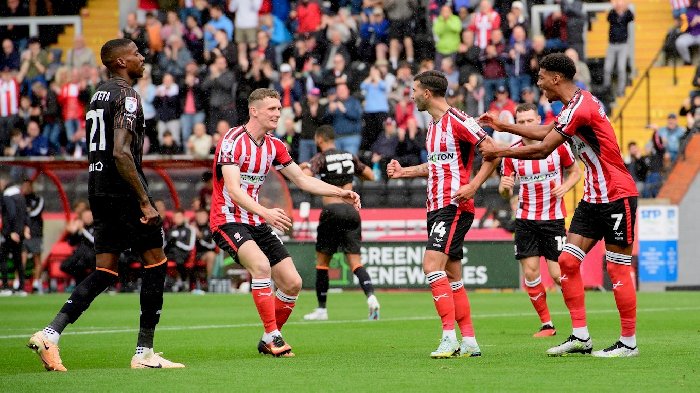
Nhận định dự đoán Blackpool vs Lincoln City, lúc 22h00 ngày 1/1/2024
Nhận định Blackpool vs Lincoln City, dự đoán Hạng Hai Anh hôm nay 22h00 ngày 1/1/2024 chính xác nhất. Nhận…
Read More » -
Outdoors

Nhận định dự đoán Derby County vs Peterborough United, lúc 22h00 ngày 1/1/2024
Nhận định Derby County vs Peterborough United, dự đoán Hạng Hai Anh hôm nay 22h00 ngày 1/1/2024 chính xác nhất.…
Read More » -
Outdoors
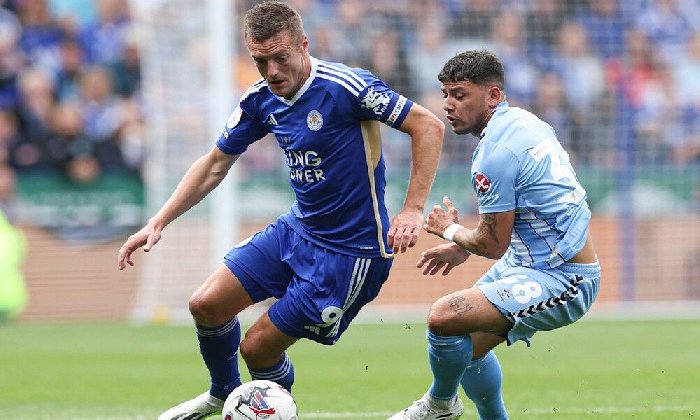
Nhận định dự đoán Leicester City vs Huddersfield Town, lúc 22h00 ngày 1/1/2024
Nhận định Leicester City vs Huddersfield Town, dự đoán Hạng nhất Anh hôm nay 22h00 ngày 1/1/2024 chính xác nhất.…
Read More » -
Outdoors

Nhận định dự đoán Middlesbrough vs Coventry City, lúc 22h00 ngày 1/1/2024
Nhận định Middlesbrough vs Coventry City, dự đoán Hạng nhất Anh hôm nay 22h00 ngày 1/1/2024 chính xác nhất. Nhận…
Read More » -
Outdoors
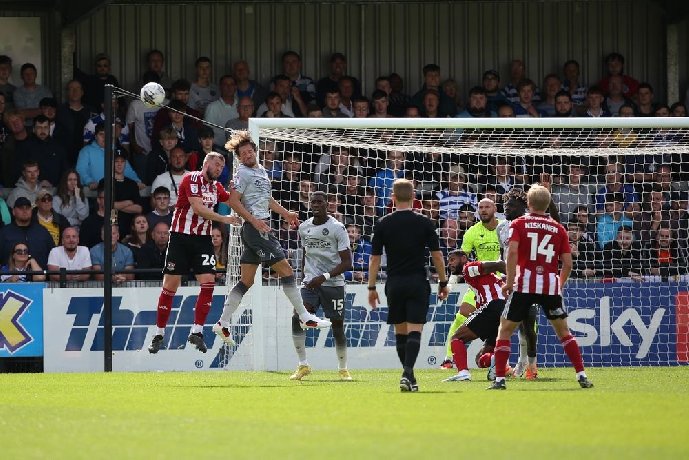
Nhận định dự đoán Reading vs Exeter City, lúc 22h00 ngày 1/1/2024
Nhận định Reading vs Exeter City, dự đoán Hạng Hai Anh hôm nay 22h00 ngày 1/1/2024 chính xác nhất. Nhận…
Read More » -
Outdoors

Nhận định dự đoán Norwich City vs Southampton, lúc 22h00 ngày 1/1/2024
Nhận định Norwich City vs Southampton, dự đoán hạng Nhất Anh hôm nay 22h00 ngày 1/1/2024 chính xác. Nhận định…
Read More » -
Outdoors

Nhận định dự đoán Plymouth Argyle vs Watford, lúc 22h00 ngày 1/1/2024
Nhận định Plymouth Argyle vs Watford, dự đoán hạng Nhất Anh hôm nay 22h00 ngày 1/1/2024 chính xác. Nhận định…
Read More » -
Outdoors

Nhận định dự đoán Queens Park Rangers vs Cardiff City, lúc 22h00 ngày 1/1/2024
Nhận định Queens Park Rangers vs Cardiff City, dự đoán hạng Nhất Anh hôm nay 22h00 ngày 1/1/2024 chính xác.…
Read More » -
Outdoors
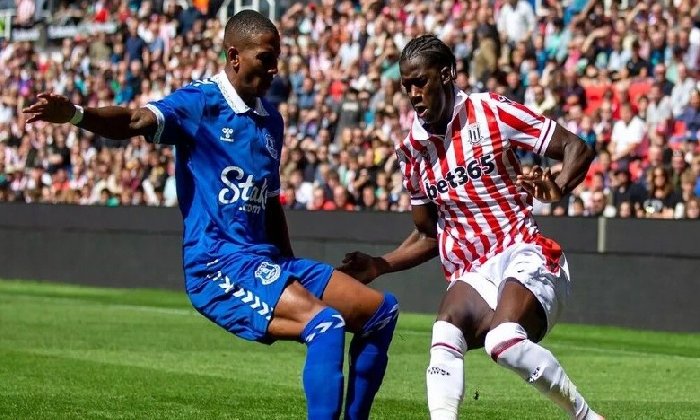
Nhận định dự đoán Stoke City vs Ipswich, lúc 22h00 ngày 1/1/2024
Nhận định Stoke City vs Ipswich, dự đoán hạng Nhất Anh hôm nay 22h00 ngày 1/1/2024 chính xác. Nhận định…
Read More » -
Outdoors
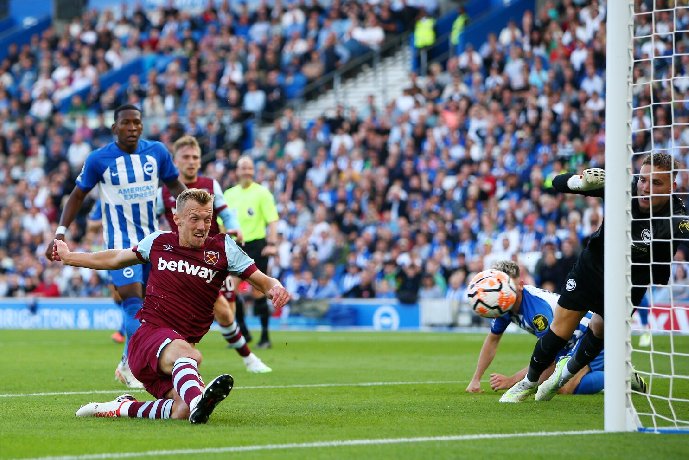
Nhận định dự đoán West Ham vs Brighton, lúc 2h30 ngày 3/1/2024
Nhận định West Ham vs Brighton, dự đoán kết quả tỷ số vòng 20 Ngoại hạng Anh hôm nay lúc…
Read More » -
Outdoors
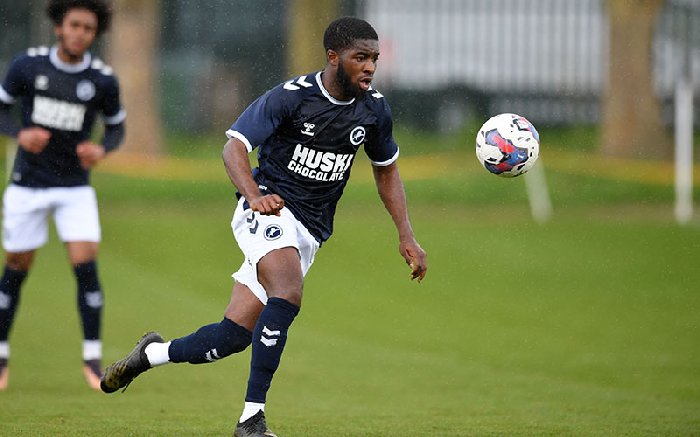
Nhận định dự đoán U21 Millwall vs U21 Charlton, lúc 20h30 ngày 4/1/2024
Nhận định U21 Millwall vs U21 Charlton, dự đoán England U21 Professional Development League 2 hôm nay 20h30 ngày 4/1/2024…
Read More » -
Outdoors

Nhận định dự đoán Crystal Palace vs Everton, lúc 3h00 ngày 5/1/2024
Nhận định Crystal Palace vs Everton, dự đoán kết quả tỷ số vòng 3 Cúp FA hôm nay lúc 3h00…
Read More » -
Outdoors
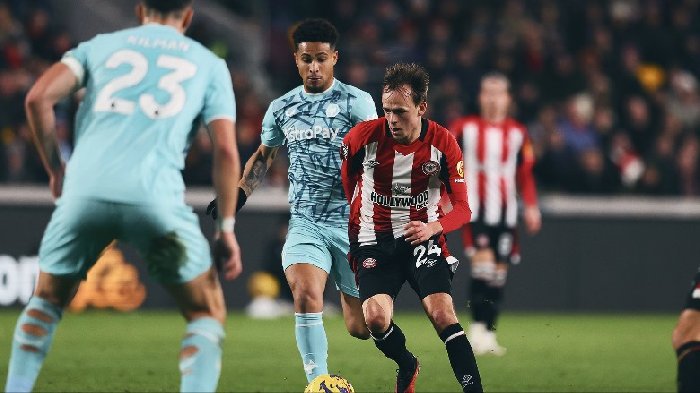
Nhận định dự đoán Brentford vs Wolverhampton, lúc 2h15 ngày 6/1/2024
Nhận định Brentford vs Wolverhampton, dự đoán Cúp FA hôm nay 2h15 ngày 6/1/2024 chính xác. Nhận định bóng đá…
Read More » -
Outdoors

Nhận định dự đoán Fulham vs Rotherham United, lúc 2h30 ngày 6/1/2024
Nhận định Fulham vs Rotherham United, dự đoán Cúp FA hôm nay 2h30 ngày 6/1/2024 chính xác. Nhận định bóng…
Read More » -
Outdoors

Nhận định dự đoán Tottenham vs Burnley, lúc 3h00 ngày 6/1/2024
Nhận định Tottenham vs Burnley, dự đoán kết quả tỷ số vòng 3 Cúp FA hôm nay lúc 3h00 ngày…
Read More » -
Outdoors

Nhận định dự đoán Millwall vs Leicester City, lúc 19h30 ngày 6/1/2024
Nhận định Millwall vs Leicester City, dự đoán FA Cup hôm nay 19h30 ngày 6/1/2024 chính xác nhất. Nhận định…
Read More » -
Outdoors

Nhận định dự đoán Sunderland vs Newcastle, lúc 19h30 ngày 6/1/2024
Nhận định Sunderland vs Newcastle, dự đoán FA Cup hôm nay 19h30 ngày 6/1/2024 chính xác nhất. Nhận định bóng…
Read More » -
Outdoors

Nhận định dự đoán Middlesbrough vs Aston Villa, lúc 0h30 ngày 7/1/2024
Nhận định Middlesbrough vs Aston Villa, dự đoán kết quả tỷ số vòng 3 Cúp FA hôm nay lúc 0h30…
Read More » -
Outdoors

Nhận định dự đoán Chelsea vs Preston North End, lúc 0h30 ngày 7/1/2024
Nhận định Chelsea vs Preston North End, dự đoán kết quả tỷ số vòng 3 Cúp FA hôm nay lúc…
Read More » -
Outdoors
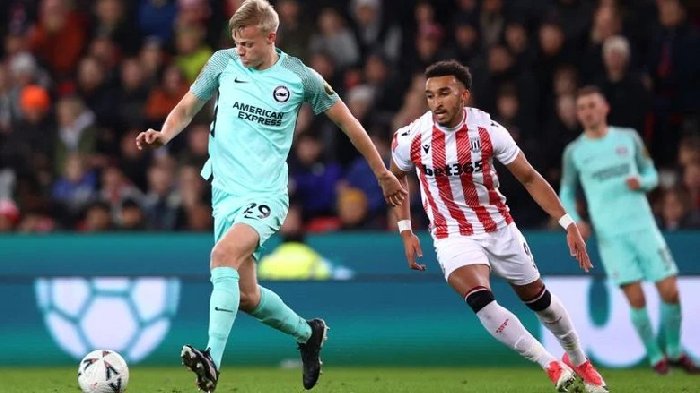
Nhận định dự đoán Stoke City vs Brighton, lúc 22h00 ngày 6/1/2024
Nhận định Stoke City vs Brighton, dự đoán Cúp FA hôm nay 22h00 ngày 6/1/2024 chính xác. Nhận định bóng…
Read More » -
Outdoors
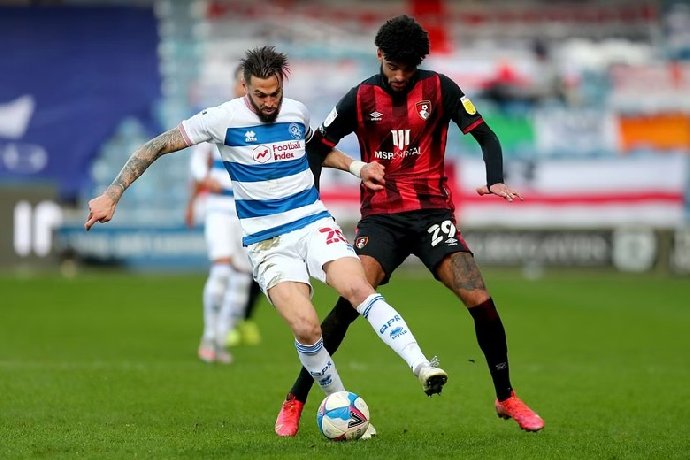
Nhận định dự đoán Queens Park Rangers vs Bournemouth, lúc 22h00 ngày 6/1/2024
Nhận định Queens Park Rangers vs Bournemouth, dự đoán Cúp FA hôm nay 22h00 ngày 6/1/2024 chính xác. Nhận định…
Read More » -
Outdoors

Nhận định dự đoán Man City vs Huddersfield Town, lúc 21h00 ngày 7/1/2024
Nhận định Man City vs Huddersfield Town, dự đoán FA Cup hôm nay 21h00 ngày 7/1/2024 chính xác nhất. Nhận…
Read More » -
Outdoors

Nhận định dự đoán West Ham vs Bristol City, lúc 21h00 ngày 7/1/2024
Nhận định West Ham vs Bristol City, dự đoán FA Cup hôm nay 21h00 ngày 7/1/2024 chính xác nhất. Nhận…
Read More » -
Outdoors
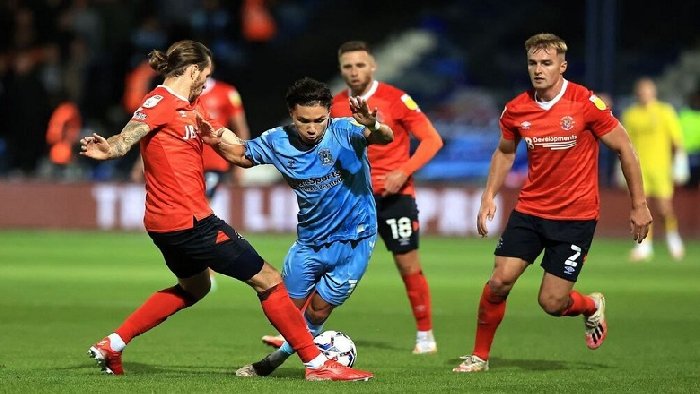
Nhận định dự đoán Luton Town vs Bolton, lúc 21h00 ngày 7/1/2024
Nhận định Luton Town vs Bolton, dự đoán FA Cup hôm nay 21h00 ngày 7/1/2024 chính xác nhất. Nhận định…
Read More » -
Outdoors

Nhận định dự đoán Peterborough United vs Leeds United, lúc 21h00 ngày 7/1/2024
Nhận định Peterborough United vs Leeds United, dự đoán FA Cup hôm nay 21h00 ngày 7/1/2024 chính xác nhất. Nhận…
Read More » -
Outdoors

Nhận định dự đoán Nottingham Forest vs Blackpool, lúc 21h00 ngày 7/1/2024
Nhận định Nottingham Forest vs Blackpool, dự đoán FA Cup hôm nay 21h00 ngày 7/1/2024 chính xác nhất. Nhận định…
Read More » -
Outdoors
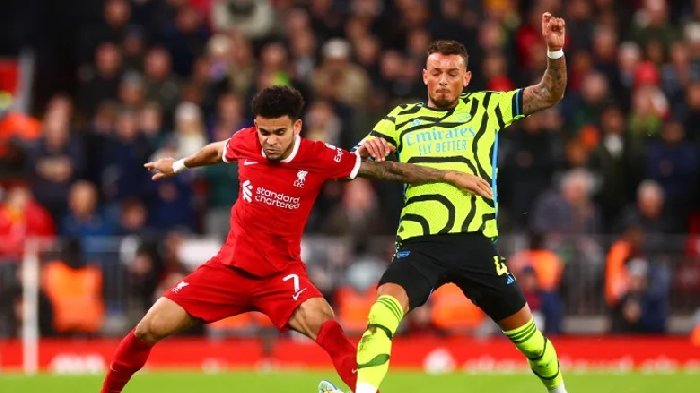
Nhận định dự đoán Arsenal vs Liverpool, lúc 23h30 ngày 7/1/2024
Nhận định Arsenal vs Liverpool, dự đoán Cúp FA hôm nay 23h30 ngày 7/1/2024 chính xác. Nhận định bóng đá…
Read More » -
Outdoors
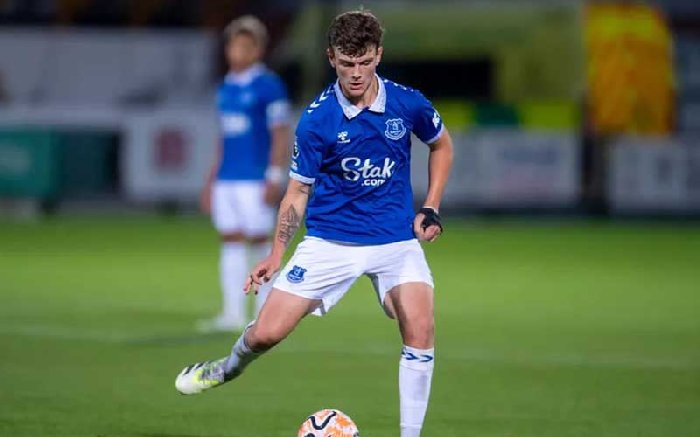
Nhận định dự đoán Birmingham U21 vs Peterborough United U21, lúc 21h00 ngày 8/1/2024
Nhận định Birmingham U21 vs Peterborough United U21, dự đoán England U21 Professional Development League 2 hôm nay 21h00 ngày…
Read More » -
Outdoors
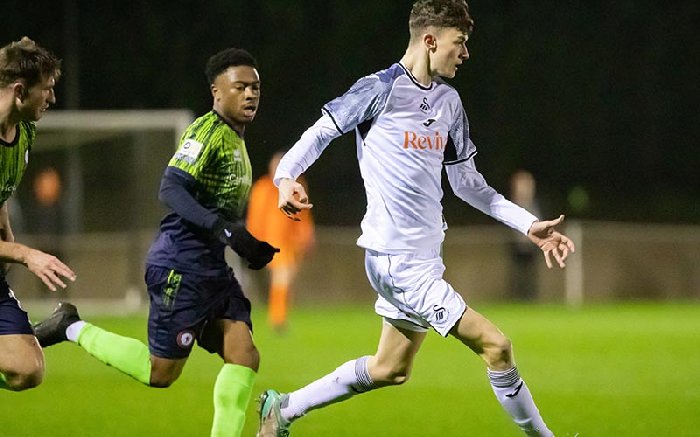
Nhận định dự đoán Swansea City U21 vs Millwall U21, lúc 21h00 ngày 8/1/2024
Nhận định Swansea City U21 vs Millwall U21, dự đoán England U21 Professional Development League 2 hôm nay 21h00 ngày…
Read More » -
Outdoors
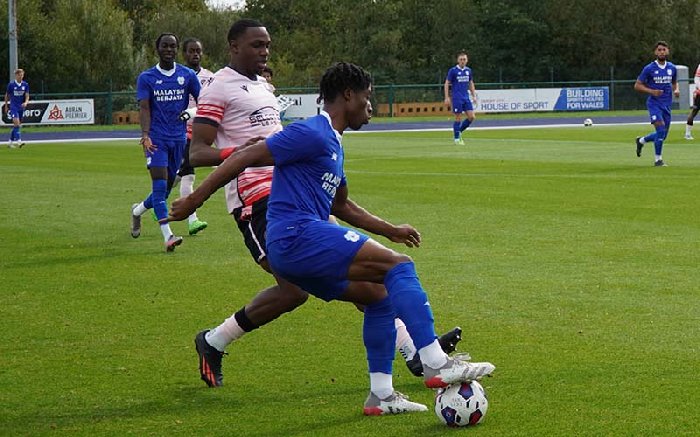
Nhận định dự đoán Cardiff City U21 vs Watford U21, lúc 21h00 ngày 8/1/2024
Nhận định Cardiff City U21 vs Watford U21, dự đoán England U21 Professional Development League 2 hôm nay 21h00 ngày…
Read More » -
Outdoors

Nhận định dự đoán Wigan vs MU, lúc 3h15 ngày 9/1/2024
Nhận định Wigan vs MU, dự đoán Cúp FA hôm nay 3h15 ngày 9/1/2024 chính xác. Nhận định bóng đá…
Read More » -
Outdoors
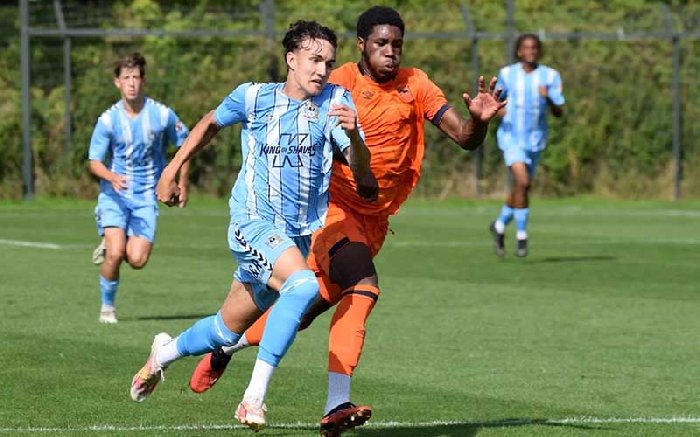
Nhận định dự đoán U21 Coventry vs U21 Hull City, lúc 20h00 ngày 9/1/2024
Nhận định U21 Coventry vs U21 Hull City, dự đoán England Professional Development League 2 hôm nay 20h00 ngày 9/1/2024…
Read More » -
Outdoors
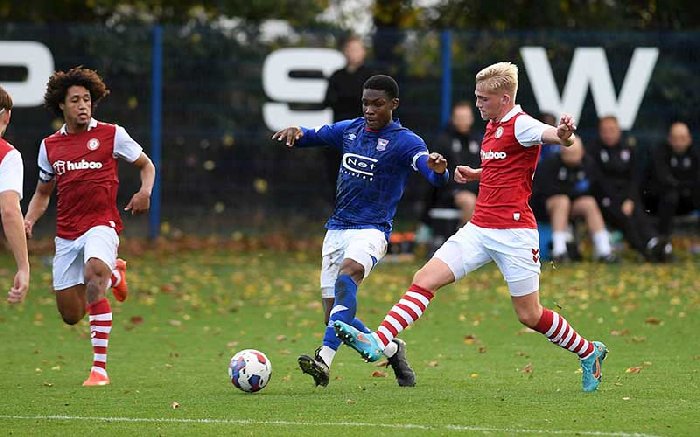
Nhận định dự đoán U21 Ipswich vs U21 QPR, lúc 20h00 ngày 9/1/2024
Nhận định U21 Ipswich vs U21 QPR, dự đoán England U21 Professional Development League hôm nay 20h00 ngày 9/1/2024 chính…
Read More »

